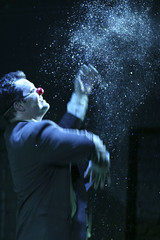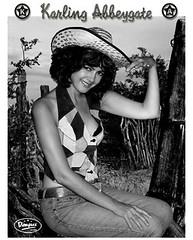As a public-school-educated, secular Jew living in an overwhelmingly religious and Christian country, I have often wondered where some fundamendalist Christians get the notion that their religion is in any way threatened here. Recently word spread of a lawsuit by Jewish families against a school district in Delaware where non-Christians were essentially run out of town.
“We have a way of doing things here, and it’s not going to change to accommodate a very small minority,” a local businessman told the New York Times. “If they feel singled out, they should find another school or excuse themselves from those functions. It’s our way of life.” A Jewish mother who complained about other students using slurs against her son was scolded at a school board meeting thus: “If you want people to stop calling him ‘Jew boy,’ you tell him to give his heart to Jesus.”
I’ve traveled enough to know that the US population is not on the whole mean-spirited or even overtly racist. But I do believe that the above story illustrates an important fact: where one religion – even a very factionalized one – dominates a society, public institutions (including schools) must be governed and enabled so as to act as a firm check on the tyranny of the majority. In the US, that majority is, loosely-defined, Christian. If his public school won’t even try to protect him from discrimination, where can a little non-Christian boy turn?
Richard Miller’s sharply-worded polemic, Why Christians Don’t Vote for Democrats, presents a different perspective on the nature and value of public schools (and other secular institutions) than what I had imagined was the general view. Without mentioning vouchers per se, it helps explain why the issue has been so polarizing.
Put simply, some Christians – call them fundamentalist, evangelical, or, as Mr. Miller would have it, simply Christians – view state-run public schools as a form of taxation without representation. Just as senior citizens sometimes protest paying taxes for schools in which they have no children, Miller objects to funding schools he believes are filling Christian children’s heads with anti-Christian ideas and being forced to pay again if he wants to put his kids in a private religious school.
This raises the question: if we allow parents to use their tax dollars to put their kids in non-public schools, wouldn’t it be logical to also exempt the aforementioned senior citizens from school taxes? And while we’re at it, shouldn’t a family with six children in the public schools pay higher taxes than a family with only two? This path is strewn with dangers for a society that values egalitarianism.
Fundamentally, are we, as a country, to consider ourselves a single community that puts a high value on education? I can’t legally withhold my income taxes just because I don’t approve of the wars the government is spending them on, or not pay sales tax at the corner store because my state has a corrupt legislature. If we consider education to be a different sort of public good, to be treated specially, and we allow individual families to withhold taxes because of religious beliefs, then what is the justification for public schools anyway? Simply to educate the poor? It’s hard to imagine even basic educational standards being met by the broken stub of a public school system that would remain under that philosophy.
While he reserves his most urgent rhetoric for the school issue, Miller has a whole raft of reasons Christians shouldn’t vote for Democrats, most notably the “values” issues that came to the fore in the 2004 Presidential election. His arguments are carefully organized and obviously deeply felt. But his terminology, and its underlying assumptions, require scrutiny.
Right off the bat, he conflates the terms secular and atheist. A great many Americans believe in the secular state without being atheists, but this book confuses the two terms. That’s more than semantics – it betrays a misunderstanding of what secular means, and of what it means to this country.
As commonly used today, secular has two related meanings, neither of which implies atheism. First, it refers to worldly as opposed to spiritual matters. Second, it means “not specifically relating to religion or to a religious body,” as in secular music. The word simply denotes that part of a life, society, or culture that is not spiritual or religious.
Miller believes Christians are inadequately represented in our secular government because they are not united in their voting habits. Discussing the 2004 exit polling that uncovered the famous “values vote,” he calls it “one hint of a division occurring between secular, or atheistic, Democrats and Christian America.” Through the book he “hopes to communicate to the Democratic Party why Christians don’t vote for Democrats. How do Christians communicate to atheists their legitimate objections to the Democratic Party in a mature and loving way?”
Miller’s stress on communication and kindheartedness is laudable. But the statements quoted above use more terms in questionable ways: Christian America and Christians. In his use of these words, Miller fails to take into account the many who consider themselves Christian but disagree with his take on what Christian really means. The monolithic Christian voting bloc he imagines cannot exist, at least as the American public is currently constituted. For a great many people of faith, religious values are only one aspect of their lives. They have many – and indeed, sometimes conflicting – factors on which to base their voting decisions.
Terminology is also telling in the chapter called “Secular Journalists,” in which Miller objects to the use of the term fundamentalist. “Do fundamentalist Christians,” he asks rhetorically,
have a different theology than other Christians?… Secular journalists seem to indicate that they believe fundamentalist Christians are a small part of Christian America… [but] to suggest [that] only a few Christians believe in the fundamental teachings of the Bible is insulting and offensive to all Christians. The term fundamentalist Christian, as used by secular journalists, is intended to project a derogatory, negative image of all Christians.
It’s true that anti-religious bias exists in some intellectual circles. But Miller’s parsing of the term fundamentalist ignores one whole dimension of its modern meaning, which is “one who believes in the literal truth of a scripture.” This “f-word” may have taken on a derogatory cast for some, and it may not even be the best term for what it describes, but as long as there are many millions of Christians who do not believe in the literal truth of everything in the Bible, we need a word for those who do.
To many, it is the philosophy and teachings of Jesus that matter most. For example, although today’s Republican party is identified with the Christian right, many Christians – indeed, enough to form a majority of Americans – oppose its policies on both moral and practical grounds. Case in point: clergymen of many stripes have united to oppose Republican warmongering, while among the laity, bumper stickers ask “Who would Jesus bomb?” and broadcast convictions like “Jesus was a liberal” and “When Jesus said love your enemies he didn’t mean kill them.” Everywhere you look you see religious Americans joining nonreligious ones in calling for peace. In doing so they explicitly support the positions of the supposedly anti-Christian Democratic party.
Miller concisely states the heart of his complaint in a chapter called “Freedom of Education:”
Secular Democrats want the wall of separation of church and state to be low enough for the state to reach over and confiscate the Christian community’s wealth, but high enough to prevent Christians from benefiting from the very same taxes Christians pay. Secular Democrats do not want the school tax dollar to go to individual students, but to a self-perpetuating, tax-subsidized, secular school, which works to convert Christian students into atheists.
It’s interesting to note that while the law does require him to pay property taxes to fund his local public schools, it exempts his church from those same property taxes. That, in turn, penalizes the nonreligious property owner who must pay higher taxes to make up for all that exempt church property. (And I live in Brooklyn, the “Borough of Churches.” They’re everywhere, man!) Maybe, in some indirect way, the church on my block provides a service for me by feeding some homeless people who might otherwise turn criminal. But in the same sense, doesn’t his school tax dollar provide a service for him by paying for schools to educate all the kids from the parts of society that do not share his beliefs? We have many divisions in our society – but shouldn’t we at least strive to be one nation?
Also, Miller’s conception of what public schools are like does not reflect reality. Almost anyone who has been to public school (and paid any attention in class) will recognize as absurd his claim that the schools try to “convert Christian students into atheists.” Public school curricula, by design, have little to say on the subject. Yet his point does illustrate a conflict in educational philosophy. In the traditional “liberal arts” philosophy to which I and many Americans subscribe, the main point of education is to teach children to think. In Miller’s view, it’s to teach them doctrine. Yet both of these attitudes include their own friction and contradictions.
Church doctrine has been arrived at over two thousand years of debates, compromise, decrees, political wrangling, and wave after wave of horrendous violence. Miller is aware of that history but dismisses it with the simplistic claim that “the theological table of debate has discovered a vast agreement concerning the teaching of the Bible.” (And if you believe that, you probably believe Donald Rumsfeld’s claims that things are getting better in Iraq.) The point is that the doctrine taught in a religious school governed by one particular sect reflects just one perspective among many. Even in a country where Christian sects live peaceably, their disagreements about how to interpret the Bible, live their lives, and worship their deity or deities persist. Although “evangelical” Christianity has certainly been on a roll lately, America remains a multicultural stew of dozens of Christian sects, along with several types of Jews, Muslims, atheists, and others. The voting bloc Miller calls for is a pipe dream.
Our nondenominational public schools too live with doctrinal tension. They have often been used to slant children into specific biases, notably with respect to American history and the relative value of non-Western cultures. Religion creeps in too, in the insertion of “under God” into the Pledge of Allegiance, in attempts to put nonsense like “creation science” (now rechristened “intelligent design”) into the curriculum, in holiday celebrations that presume Christian religious beliefs to be universal, and, in extreme cases like the Delaware travesty, in outright persecution. So, Miller’s contention that state-controlled schools are, like state-controlled newspapers, “a form of thought control” cannot be fully denied. But the “thought control” is not, as a rule, anti-Christian.
I do not for a minute question Miller’s sincerity, but I fear that he, like many of his less articulate brethren, has fallen prey to the sort of top-down propaganda that recently brought us the much-hyped (and justly ridiculed) idea of a “War on Christmas.” Just like frightened, insecure politicians, some Christian leaders use fear to assert their rule over their flocks. One example is the fear of homosexuals reflected in Miller’s “Values” chapter, where he makes the execrable but all-too-common leap from homosexuality to evil acts:
“Secular Democrats may believe sexual orientation is genetic, but we have yet to identify the gene for pedophilia. Some adults’ sexual orientation is toward children, but this does not necessitate giving the same minority protections to pedophiles we now give to age, sex, color, or creed. Rape is natural in the animal kingdom, but it is also unacceptable to civil society.
He does it again at the very end of the book, predicting that legalized abortion will be followed by legalized infanticide. Intentionally or not, he is engaging in the same form of denigration by association that enables slave societies to view certain types of people as subhuman and not worthy of common rights, including even the right to be alive.
Miller’s other bugbear is the Supreme Court, which, he says disapprovingly, “controls entire areas of law. The President and Congress can make a law, only to have the Supreme Court disagree with it, or effectively veto it.” Well, yes. That’s the whole point. But since Miller doesn’t like some decisions that have come down from recent Courts, he proposes to scrap the whole system of separation of powers with a constitutional amendment to allow the President and Congress to overturn a Supreme Court decision by a two-thirds vote. In effect he’d like to use the Constitution to nullify itself.
“Christians,” he says, “will unite their vote because the political agenda of the secular Democrats is obviously motivated by deeply intrinsic, internalized, and imbedded religious prejudice.” You may need to read the book to decide if you agree with Miller’s claims about prejudice. But you need only look around you to see that his vision of a united “Christian” vote can’t come true in any foreseeable future. And his perception of the Democratic party as the enemy of “Christian America” is looking more wrong by the day, as Americans of all creeds, whatever they may believe about abortion or school vouchers, raise their voices (and prepare to cast their votes) against the Christian-right-backed Republican government that keeps using their hard-earned wealth to kill innocents abroad.



